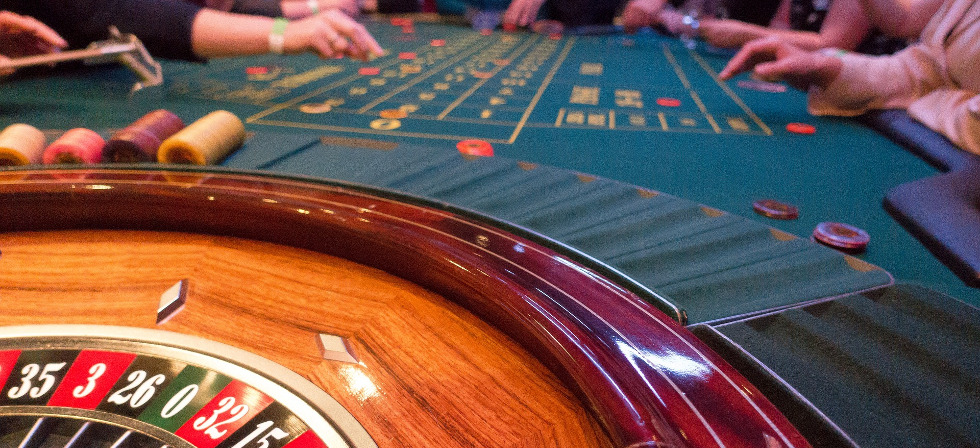
When we think of casino games, the initial images that often cross our minds are those of spinning wheel wheels, poker chips clinking on fabric surfaces, and dice flying across a gaming surface. While many view these games as mere hobbies fueled by chance, a deeper exploration reveals a fascinating blend of strategy, expertise, and community interaction that elevates them well beyond basic luck. Regardless of whether you are a experienced player or a inquisitive newcomer, understanding the subtleties of these games can greatly enhance your experience and understanding.
Casino activities have developed over centuries, with various cultures contributing to their diverse backgrounds and different forms. okwintvokwintv trực tiếp bóng đá From the intricate strategies of blackjack to the bluffing methods in poker, players engage in a contest of wits as much as a risk on odds. This exciting interplay between luck and expertise creates a thrilling atmosphere that draws countless people to gambling establishments worldwide. As we delve into the realm of card games, we will reveal the methods that can shift the odds in your favor and the community elements that make these games a popular choice for entertainment and engagement.
The Approach Behind Table Games
Casino games frequently combine a mix of skill and chance, which makes them intriguing for players who like a challenge. Each title has their own set of guidelines and strategies that can influence the results. For example, in titles like blackjack, participants are obliged to use strategies like counting cards and grasping the probabilities to make informed decisions. This skill set can significantly improve the winning potential, differentiating seasoned players from novices who may depend entirely on luck.
Conversely, games such as roulette may appear to be purely based on chance, but strategic thinking can also come into the equation. Participants can select between different betting strategies, such as the Martingale strategy, in which they raise the wagers after losses. This approach can establish a more methodical way to the game. Understanding the probabilities of specific wagers can also assist players make better decisions on the roulette table, demonstrating that even in titles of chance, strategy can enhance the enjoyment.
Additionally, the game of poker stands out as a title that heavily emphasizes tactics. Unlike most casino games, the game of poker merges skill, mental acuity, and luck. Participants must not only focus on the hands they are given but also consider their rivals’ actions and betting patterns. Mastering principles like position, the odds of the pot, and interpreting bluffing is essential for success. This depth of strategy in poker often leads to a more immersive experience for players, where the choices and skills significantly impact the game’s results.
Grasping Likelihood and Odds
In the realm of gambling games, probability and ratios play a vital role in determining a gambler’s potential consequences. Every activity has its own collection of rules that dictate how the chance of winning or failing is measured. For example, in games like 21, participants have a chance to affect their odds through tactics, whereas in matches like the wheel, the results are purely governed by luck. Comprehending how these chances are calculated can greatly affect how a gambler tackles the match.
Ratios are typically presented in two formats: ratio and decimal. Ratio ratios show the ratio of the sum won to the sum bet, whereas decimal ratios show the overall return for a successful wager, including the stake. For example, if a game has ratios of 5 to 1, this implies that for every one dollar bet, a player could gain five dollars if successful. Knowing how to read these ratios allows gamblers to assess their potential earnings and formulate more informed choices during play.
Gamblers should also be aware of the house edge, which is the casino’s built-in benefit over the gamblers. Each match has a distinct house edge, and grasping this idea is crucial for managing one’s hopes and funds. Activities with a lower house edge, such as 21 and baccarat, typically offer superior ratios for gamblers compared to activities like slots and lottery. By acknowledging the connection between probability, ratios, and the casino advantage, gamblers can improve their gambling engagement and strategize more effectively. xem bóng đá okwintv
The Social Aspect of Table Gaming
Casino games at gaming establishments are often seen as a hub of social interaction, bringing participants together in a collective experience that goes far beyond the mere act of gambling. The atmosphere at a blackjack table can be vibrant, with players engaging not only with the game itself but also with one another. Joy, excitement, and, occasionally, friendly banter create connections that improve the overall experience of the gaming experience. This communal aspect can turn a solitary endeavor into a lively social event, making table games particularly enticing.
One of the intriguing elements of gaming at tables is the way it cultivates friendship among players. Whether it’s collaborating to defeat the dealer at a dice table or sharing stories between hands in a poker game, the environment encourages interaction. Players often share advice or tactics, creating a sense of community that boosts the fun. This social dynamic can make new gamblers feel included and less daunted by the competitive nature of gaming. As the game progresses, friendships may form, leading to a sense of belonging that keeps participants returning to the table.
Moreover, the social aspect of gaming at tables extends outside just the players. Dealers play a vital role in facilitating interaction and maintaining the flow of the game. Their ability to engage gamblers with warm dialogue and their expertise in managing the table can create an inviting atmosphere. This relationship between participants and staff adds another layer of enjoyment, where players feel connected not only to one another but also to the staff. Such interactions are often what make the experience unforgettable, as participants leave with tales to tell and connections made, reinforcing the notion that gaming at tables are truly about more than just chance.